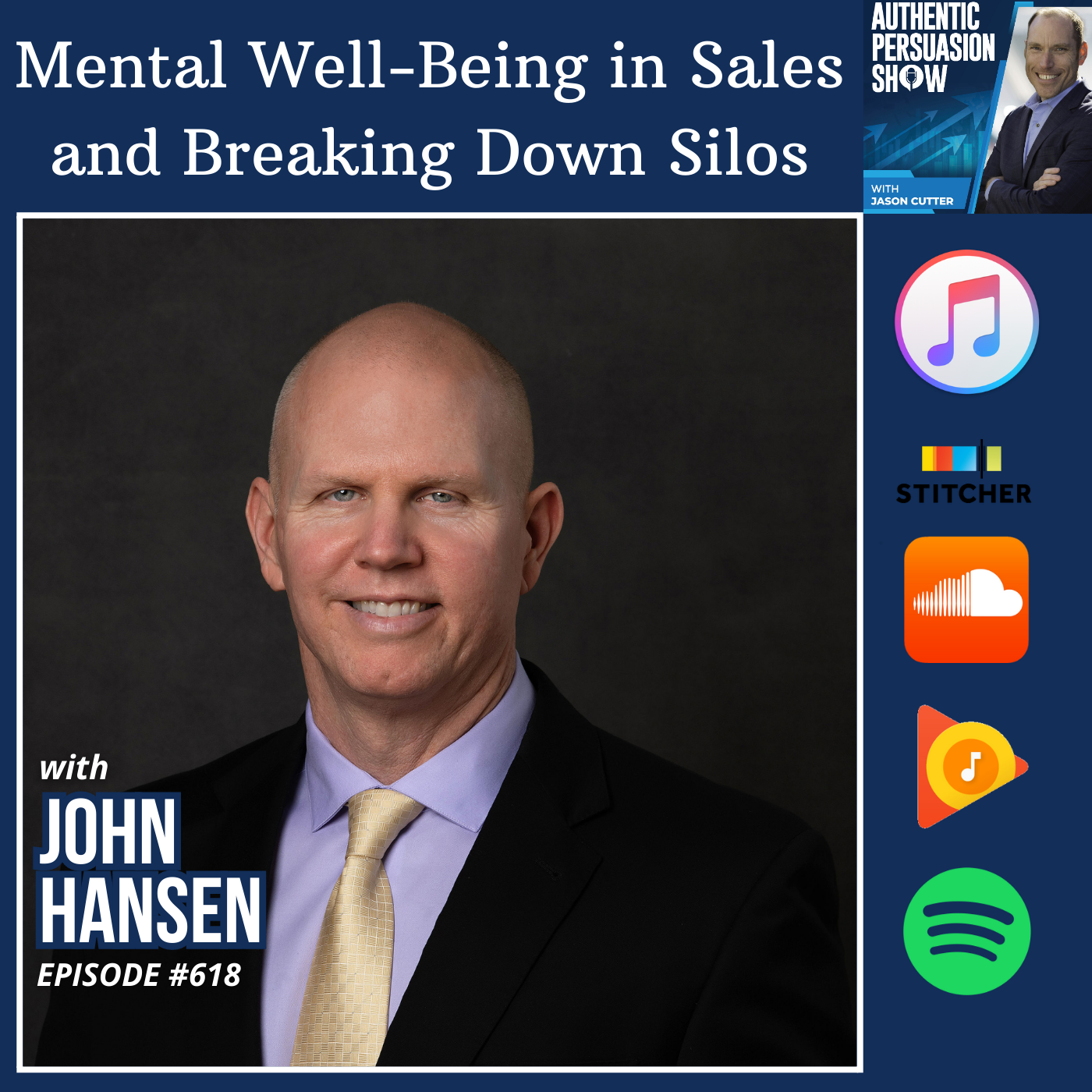Show Notes
Of course, I have seen salespeople who closed deals, made bonus/commission, and didn’t use a sales process. No script, no system – all charisma, stories, closing abilities and aggression.
However…I have never seen someone like that who had a long term successful sales professional career. Just bursts of success followed by severe droughts.
The key to any long-term success (in pretty much anything) is having a system.
For sales, you have heard me talk about it before – whether it is a full script or just an outline/checklist, the only way to create consistent results is with a sales process.
With telesales you have the advantage of not having the prospect see your tools and scripts – so use them!
Episode 67 – Transcript
Hi, welcome back to the sales experience podcast.
So glad you’re here. So excited. If you’re listening to this, you’re in sales thinking about sales. You manage a sales team, you’re here. It’s an exciting week on the show talking about telephone sales inside sales. This is the second part of the episodes this week. Yesterday, if you didn’t catch it, listen to episode 66 I’ll give you the basic premise of it.
If you’re in a telephone sales role, inside sales role where you want to talk to people over the phone and close deals and that’s your main vehicle, then it fundamentally just requires you to be on the phone most of the time, not all the time.
That’s my numbing. That will melt your brain, that will burn you out, that will make you lose your voice, so you can’t go 100% of the day on the phone. That one’s a tough one to sustain long term, but five hours, six hours out of an eight hour day, absolutely on the phone, putting in the effort.
That’s the only way to do it. You can’t win the game unless you’re on the court and you can’t just watch the game and hope that you win by not stepping on the court and putting in the effort, playing the game and trying to win. So today’s episode is going to be an extension of that. So obviously the first step is in a phone related sales job.
Is he got be on the phone? I know. Sounds dumb. Sounds ridiculous. Why would I have spent a whole episode on that? Why am I talking about it again?
Because I see it literally every single day and I have four years where telephone sales people inside sales reps, whether they’re account executives doing B to B or they are sales agents on B to c on the phone constantly, they are not on the phone enough. And also usually complaining about the fact that they’re not hitting quota, not hitting bonus, not making money, not closing enough sales.
Other people are winning around them and they’re not. And so it seems silly and ridiculous that I would talk about it, that a phone job requires you to actually be on the phone. People always laugh at me when I bring that up, but it’s fundamentally true and I only mentioned it because I see so many people missing that critical part. All right, now you’re on the phone, you’re on the calls. What do you do next? The next part is follow a process.
This episode, episode 67 is all about following a process and I’ve talked about it so many times in the past on other episodes where I talked about scripting and tools and processes is that you’ve got to do the same thing over and over again on every single call and you’ve got to make it automatic. You’ve got to have it be something that you do every single time.
If I were to take 10 of your sales calls and line them up, they should follow the same process. They should sound the same whether it’s a written script or it’s in your head because you’ve done it for so long to follow the same process.
Now, here’s the big challenge with that is in a sales role, whether it’s over the phone or in person, there’s a challenging kind of combination where you’ve got one human, you the salesperson trying to have a conversation with another human, the prospect and two humans having conversations doesn’t always follow a blueprint.
You can’t get your prospect to respond the same way, go down the same path and do the exact same thing every time. Because they’re going to have questions. They are going to have objections. They’re going to have issues. Maybe they can’t find their account number or their credit card or their payment information, or they need to have somebody else on the phone call with them as well.
There’s all kinds of things that occur that make it so it’s literally not possible for it to be exactly the same. So keep that in mind. I’m not saying it should be exactly the same and you want to be a robot for sales that can be done by a robot. They generally are.
Someone can go online, put in their payment information, whatever it is that they’re trying to buy. It’s automated. It’s order-taking. It’s a commodity. It’s very easy and basic. It doesn’t require you that professional salesperson, when it takes a salesperson over a phone to have some kind of consultative enrolment type conversation, then there’s going to be some variability.
That’s why you’re there. That’s why the company hired you because they need somebody who can a follow up process but then be go with the flow but still get to the end result and that’s the key though is you’ve got to follow a process.
The main reason why is that if something happens and you’re not closing sales, if you get into that slump like I talked about a couple of weeks ago in the Q and a section, if you get into that slump and you can’t get out of it, the first step is to go back to the process.
Most likely you stopped following the process that worked, the tools that the company gave you and you need to get back to that. It’s all about doing something very similar every single time doing the same thing, following the same process, checking the same boxes in order to get the same results.
If you wanted to make a cake or bake anything or Cook Dinner, you’re gonna want to follow a recipe. Its gonna work. Now sometimes you could add a little bit here, add a little bit there. Maybe you don’t have butter, so you’re gone use this other thing instead.
Whatever it is, you want to follow the same process every single time so you can get the same result. Something that works. If you don’t, you’re trying to make a cake with no recipe and you’re just throwing a bunch of stuff together.
Sometimes it may work, sometimes it may not. And that may be okay if you’re just doing it for fun. But if you’re a professional baker, then that’s obviously not acceptable because you need to bake the same thing every time cause that’s what the customer, the company expects. Same thing in sales. You’ve got to be able to bake the same thing over and over again.
You’ve got to make that sale the same way over and over again and be able to do it even with the variability of one human talking to another. And so make sure you follow a process. Make sure you’re using the same techniques, the same strategies, the same flow over and over again to get where you need to go.
Now why am I mentioning this? Because this again seems very basic. This applies to any sales conversation over the phone or even in person and you want to make sure. Now the Nice thing is the advantage that you have on a telephone sales type of role is the other person can’t see you.
So you could have your script, your processes, everything around your desk, maybe on your cubicle wall, all kinds of forms, checklists.
You could be checking things off as you go. You have the advantage of kind of being hidden from the prospect, seeing what you’re doing, where you can follow their process. Now the trade-off is when you’re in telephone sales, you can’t see the other person.
You can’t read their body language, see their facial expressions, and see if they’re distracted or if they’re paying attention. And so that’s the trade-off. Make sure you’re just doing the same thing, following that process, making that cake the same exact way so that you know it’s successful.
And when you do that, you’ll hit your quota, you’ll sell what you need to sell, you’ll achieve your goals, make the money that you want for the reason why you’re there in the first place, and then you’ll be able to have a successful sales professional career without so much worry about the up and down.
If you’re on the phone all the time and if you’re following a process all the time, then those two parts of the form of that will get you where you need to go. All right. That’s it for this episode. I appreciate you listening to this so much.
I appreciate everyone who subscribed is listening, downloading these episodes. You know, it’s not so much of a vanity metric for me where I look at it and I’m like, okay, I’ve got this many downloads and this is where I needed to go.
It’s some more about the impact and the hope and the thought that I have of people who are listening to this like yourself where it’s helping you, it’s helping you in your sales career. It’s helping you in your personal life, these kinds of things. It’s true for a lot of different areas.
There’s little bits that you can take from all of this, and so I appreciate everyone who listens, download, subscribe, make sure to check out the website. Keter consulting group.com/podcast to all the episodes are there. Also go to LinkedIn. Find me the show. Everything is on there as well, so if you want to subscribe there, you can get daily posts via LinkedIn and see them as they come up.
Always, remember that everything in life has sales and people remember the experience you gave them.
![[E67] Telesales Week: The only way to win is with a sales process](https://episodes.castos.com/salesexperiencepodcast/images/TSEP-Cover-Telesales-Week.png)


